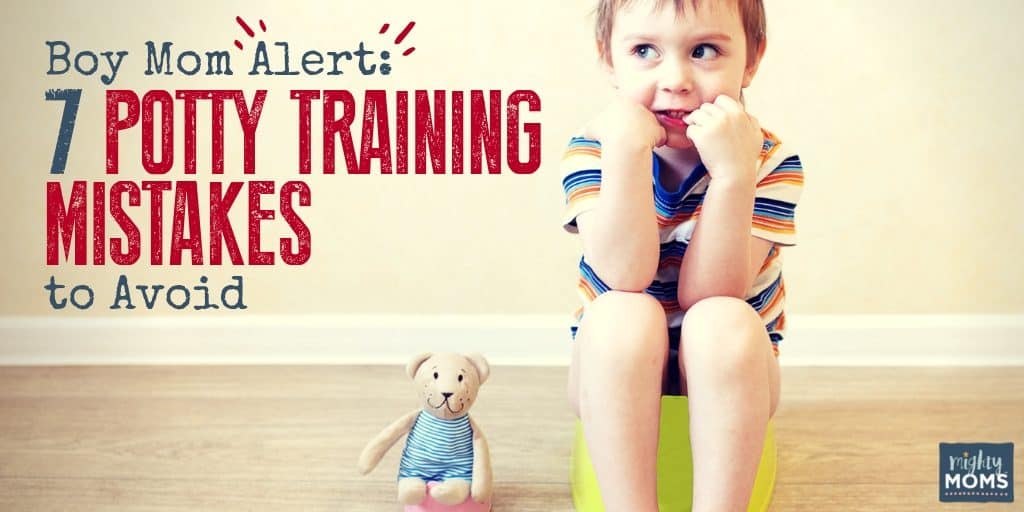
Potty Training Boys
Why it’s not about getting it “done” — it’s about helping him feel confident in his body.
If you’re here because you’ve typed “potty training boys” into Google — you’re not alone. It’s one of the most-searched parenting questions, and for good reason. You’ve likely heard things like “boys are harder” or “they take longer.” I would say: That’s not the whole story.
The truth is, boys aren’t harder. They’re just different. They might be more active, more distracted, or more sensitive to sensations like cold toilet seats or loud flushes. But these aren’t problems — they’re signals. When we slow down and pay attention, potty learning becomes not just doable — but empowering.
Let’s walk through what this really looks like, step by step.
How to Potty Train Boys
Not a bootcamp. Not a weekend sprint. A skill built with support, practice, and patience.
Before you start:
- Watch for capability, not just interest. Is he walking well? Can he communicate (even in gestures)? Can he follow a 2-step direction?
- Ditch pressure. If your gut says “we’re not ready,” you’re probably right. Wait.
- Prep the environment. Floor potty? Step stool? Potty seat on the big toilet? Involve him in picking these out.
- Normalize the routine. Let him watch a sibling or parent use the toilet. Narrate what’s happening without shame or fanfare.
The goal isn’t compliance. The goal is confidence and body trust.
When to Start Potty Training Boys
Not by the calendar. Not because Grandma says it’s time. When he is ready.
Forget age-based pressure. Potty learning is not a developmental race. Readiness might show up at 22 months — or 34. Either is normal.
Signs he’s capable:
- Pulls pants up/down.
- Notices when he’s wet or dirty.
- Stays dry for longer stretches.
- Communicates pee/poop needs (even nonverbally).
- Can handle a little frustration without a total meltdown.
One sign I say is not necessary? “Being dry for 2 hours.” That can feel arbitrary — what matters more is awareness and communication.
And if a big life event is coming up (new sibling, move, sleep changes)? Wait. Pause when life is chaotic. Potty learning thrives in calm.
best Way to Potty Train a Boy
It’s not fast. It’s not perfect. It’s connection over control.
There’s no “best” method — but there are best practices:
- Start with sitting. Even for pee. Standing too early can make poop learning harder.
- Go naked at first. This helps him see what’s happening as it’s happening.
- Stay near. Be close enough to coach, model, and cheer him on without hovering.
- Use matter-of-fact praise. No sticker charts or cheering squads needed. “Your body knew what to do — that’s amazing.”
- Introduce standing later. Once he’s confidently pooping in the potty, you can transition to standing pee — make it playful, but not performative.
No shame. No rush. No punishments. Just coaching, connection, and calm.
How to Start Potty Training a Boy
Begin before you “begin.”
Potty learning starts before you ditch diapers. Here’s how to start gently:
- Read books about the potty. Not ones that promise miracles in 3 days. Realistic, gentle stories that reflect your values.
- Let him explore the potty — sit on it with clothes on, use it to potty a stuffed animal, decorate it with stickers.
- Model everything. Narrate your own potty process in a calm, factual way: “Now I pull down my pants. I sit on the potty. I feel the pee coming out.”
- Play pretend. Have him practice potty steps with a doll or action figure.
All of this sets the stage. So when the Big Day arrives, it doesn’t feel like a shock — it feels familiar.
FAQ: Potty Training Boys
Q: Do boys really take longer to potty train?
A: Not always. Some do — often because they’re more distracted or active. But the key is readiness, not gender.
Q: What if he refuses to poop?
A: Fear, control, or past discomfort can all play a role. Use empathy, rituals, and breathing games. If he holds poop often, rule out constipation.
Q: Should I wait for him to stay dry overnight?
A: No. Night dryness is a hormonal milestone, not a learnable skill. Use diapers at night until he’s consistently dry.
Q: Can we use rewards or sticker charts?
A: I recommend caution. External rewards can shift focus away from body awareness and internal motivation. Praise progress, not just results.
Citations
- American Academy of Pediatrics, “How to Tell When Your Child Is Ready,” HealthyChildren.org, November 2, 2009, https://www.healthychildren.org/English/ages-stages/toddler/toilet-training/Pages/How-to-Tell-When-Your-Child-is-Ready.aspx.
- Centers for Disease Control and Prevention. “Important Milestones: Your Baby by Three Years.” Centers for Disease Control and Prevention, 2018. https://www.cdc.gov/ncbddd/actearly/milestones/milestones-3yr.html.
- American Academy of Pediatrics, “The Right Age to Toilet Train,” HealthyChildren.org, May 24, 2022, https://www.healthychildren.org/English/ages-stages/toddler/toilet-training/Pages/The-Right-Age-to-Toilet-Train.aspx.
- American Academy of Pediatrics, “Is It True That Boys Are Usually Toilet-Trained Later than Girls?,” HealthyChildren.org, August 31, 2016, https://www.healthychildren.org/English/tips-tools/ask-the-pediatrician/Pages/is-it-true-boys-usually-toilet-trained-later-than-girls.aspx.
- Schum, T., Kolb, T., McAuliffe, T., Simms, M., Underhill, R., & Lewis, M. (2002). Sequential acquisition of toilet-training skills: a descriptive study of gender and age differences in normal children. Pediatrics, 109 3, E48 . https://doi.org/10.1542/PEDS.109.3.E48.
- Mayo Clinic Staff. “Potty Training: How to Get the Job Done.” Mayo Clinic, 2019. https://www.mayoclinic.org/healthy-lifestyle/infant-and-toddler-health/in-depth/potty-training/art-20045230.
While I love chasing bad guys, building skyscrapers, and making mud pies; potty training boys is one adventure I’d prefer to sit out.
Maybe it’s because they have a natural love for messes, or maybe it’s just that they’re so caught up in th
Have You Read These Yet?
